Vindicating the Founders
Vindicating the Founders
RACE, SEX, CLASS, AND JUSTICE
IN THE ORIGINS OF AMERICA
Thomas G. West

ROWMAN & LITTLEFIELD PUBLISHERS, INC.
Published in the United States of America
by Rowman & Littlefield Publishers, Inc.
4720 Boston Way, Lanham, Maryland 20706
www.rowmanlittlefield.com
12 Hids Copse Road
Cumnor Hill, Oxford OX2 9JJ, England
Copyright 1997 by Rowman & Littlefield Publishers, Inc.
First paperback printing 2001
All rights reserved. No part of this publication may be reproduced, stored in a retrieval system, or transmitted in any form or by any means, electronic, mechanical, photocopying, recording, or otherwise, without the prior permission of the publisher.
British Library Cataloguing in Publication Information Available
The hardback edition of this book was previously cataloged by the Library of Congress as follows:
Library of Congress Cataloging-in-Publication Data
West, Thomas G., 1945
Vindicating the founders: race, sex, class, and justice in the origins of America / Thomas G. West.
p. cm.
Includes bibliographical references and index.
1. United StatesPolitics and government17831865. 2. United StatesPolitics and government17751783. 3. Constitutional historyUnited States. 4. CitizenshipUnited StatesHistory. 6. Right of propertyUnited StatesHistory. 7. Womens rightsUnited StatesHistory. I. Title.
E302.1.W47 1997
ISBN: 978-0-8476-8517-2
ISBN 0-8476-8517-9 (pbk. : alk. paper)
Printed in the United States of America
 The paper used in this publication meets the minimum requirements of American National Standard for Information SciencesPermanence of Paper for Printed Library Materials, ANSI/NISO Z39.481992.
The paper used in this publication meets the minimum requirements of American National Standard for Information SciencesPermanence of Paper for Printed Library Materials, ANSI/NISO Z39.481992.
For my father and mother
Irving Parmelee West and
Marjorie Ergmann West
Contents
Acknowledgments
The Claremont Institute for the Study of Statesmanship and Political Philosophy in Claremont, California, commissioned the originals of the chapters on slavery, womens rights, and voting rights. I finished the book while serving as the Institutes Ahmanson Fellow in Religion and Politics in 199596. Thanks to Howard and Roberta Ahmanson, to Institute president Larry P. Arnn, and to former vice presidents (now senior fellows) Douglas A. Jeffrey and Charles Heatherly for their generous support and encouragement, in this project and many others. Doug also helped extensively with the editing.
Thanks also to the University of Dallas for funding one semester of my 199596 sabbatical and for supporting my work in many other ways.
Through the generosity of Henry Salvatori, Charles Kesler brought me to Claremont McKenna College as Salvatori Visiting Scholar from 199092, where I began the research that led to this bookwhich research, God willing, will soon lead to another.
The first draft of the chapter on property rights was written for a 1993 conference at the Pacific Research Institute through the kind invitation of Program Officer Steven Hayward.
The Earhart Foundation enabled me to take time off from teaching to work on the book through grants in the summer of 1990 and the academic year 199394. Thanks to President David Kennedy and Director of Program Antony Sullivan for their support of this and other projects over the years.
Thanks also to the Aequus Foundation for grants in 1994 and 1995 to work on the revisions.
Forrest McDonald, who read the manuscript for Rowman & Littlefield, endorsed the book in spite of our disagreement on the meaning of equality in the founding (see the beginning of ). I appreciate his generosity, and I acknowledge him here as a leading historian of the founding era. I also thank the publishers other readersBurton Folsom and Herman Belz, capable historians both, and Dan Mahoney, one of our ablest political scientistsfor their praise as well as occasional sharp criticisms. Steve Wrinn, my editor at Rowman & Littlefield, was always helpful.
Finally, I owe gratitude to other colleagues, friends, and students who responded sympathetically to my arguments: John Alvis, Julie Kessler, John Grant, Jameson Taylor, Jack Paynter, John Marini, Ed Erler, Ken Masugi, Ralph Rossum, Rich Dougherty, and my wife, Grace. Others helped by attacking me: Hiram Caton, Peter Skerry, Rogers Smith, and Edward Chynoweth. Chris Wolfe suggested the title. John Grant, Julie Kessler, and Abbie Erler helped with proofreading, and John Grant with the index.
I studied political philosophy and America in graduate school with Harry V. Jaffa, who has done more than anyone else I know to recover the Founders understanding of liberty and equality. Almost alone, he has revived serious interest in the principles of the founding, not as historical curiosities of a world that is dead and gone, but as life-giving truths, real sources of political wisdom and health.
As a graduate student I took most of my classes with Harry Neumann, Harry Jaffa, Martin Diamond, and Leo Strauss. At that time and for some years after, I concentrated on Greek and German political philosophy. I always had an interest in America, but I tended to assume that Jaffa and Diamond had already done the main work and that all that remained was to dot is and cross ts.
Eventually I began to look into the founding on my own. In 1983, William B. Allen, now Dean of James Madison College at Michigan State, asked me to write an essay for one of several Liberty Fund conferences that he and Eugene Miller organized and I attended. (The essay was published as The Classical Spirit of the Founding, in The American Founding: Essays on the Formation of the Constitution, ed. Leonard Levy, J. Jackson Barlow, and Ken Masugi (Westport, Conn.: Greenwood Press, 1988), 156.) I am grateful to Bill, Gene, and the Liberty Fund for pointing me toward applying my knowledge of the philosophical tradition to American politics. The Great Books themselves teach that theory is about the real world. We students of political philosophy sometimes forget that. Some of us are tempted to equate political philosophy with the study of texts and nothing but the study of texts. The Great Books are indispensable preliminaries to real thinking, but the thinking itself must be about the world we live in if it is to be our own and not merely transmission of someone elses thought.
is reprinted with permission from Loyalty Misplaced: Misdirected Virtue and Social Disintegration, ed. Gerald Frost (London: Social Affairs Unit, 1997). The chapter appears in a revised version in this book.
Preface
This book will show that Americas Founders well deserve the respect that citizens and schoolchildren still pay them, but which has long been out of fashion among Americas elites. The Founders wrote and approved a Declaration of Independence whose central proposition was that all men are created equal. They set up a government that did what no democracy had ever done before: It combined majority rule with effective protection for minority rights. It enabled a larger number of men and women to live in prosperity and liberty than any other nation has ever done.
In spite of this undeniable success, many of our leading sophisticates today would rather talk about the Founders failures. Instead of the victories they won on behalf of freedom, we hear loud complaints about their supposed racism, sexism, and elitism. The Founding Fathers, we are told, did not really believe that all men (and women) are created equal. Washington and Jefferson owned slaves. Women and the poor were excluded from voting. So how can we take seriously the Founders supposed belief in human equality?
Next page

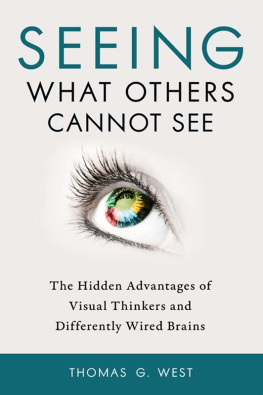
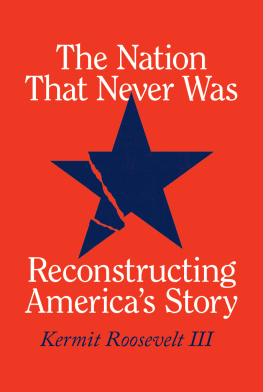
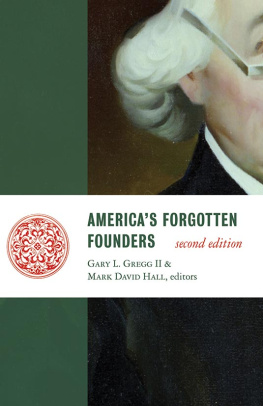
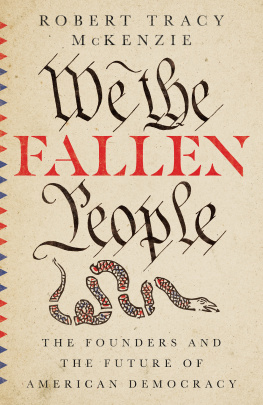
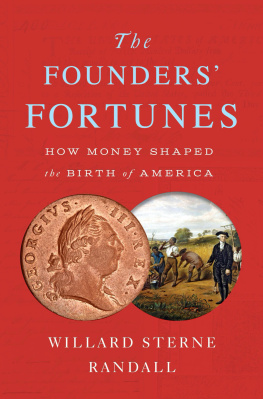
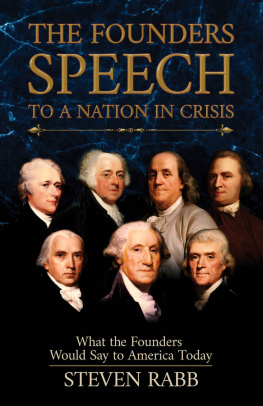
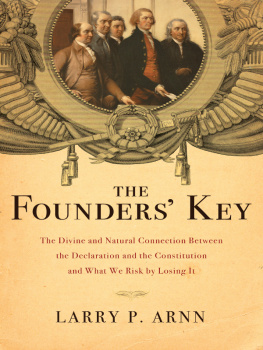

 The paper used in this publication meets the minimum requirements of American National Standard for Information SciencesPermanence of Paper for Printed Library Materials, ANSI/NISO Z39.481992.
The paper used in this publication meets the minimum requirements of American National Standard for Information SciencesPermanence of Paper for Printed Library Materials, ANSI/NISO Z39.481992.